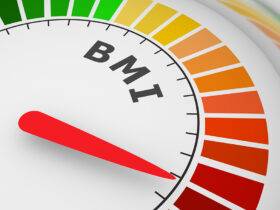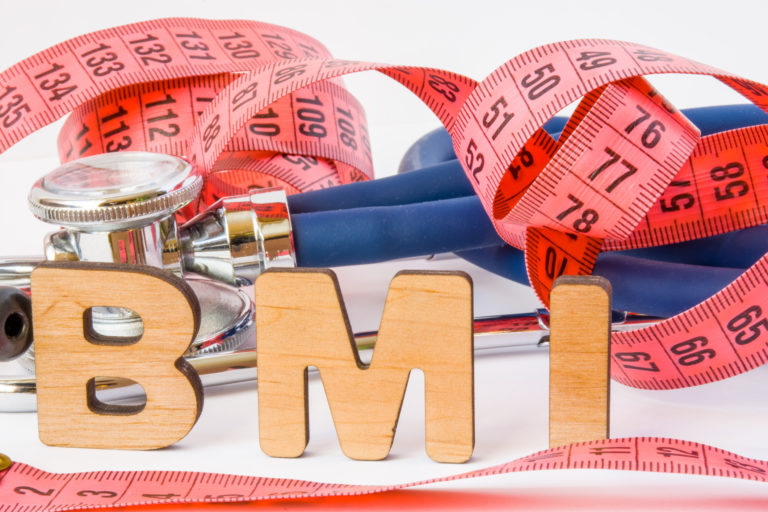Maintaining a healthy body is crucial for living a long and happy life. However, with so much conflicting information out there, it can be challenging to know where to start. One of the most important factors to consider when it comes to your health is your body mass index (BMI). BMI is a measurement that takes into account your height and weight to determine if you are at a healthy weight for your body type. In this article, we will discuss everything you need to know about BMI, how to calculate it, and why it’s crucial for maintaining a healthy body.
What is BMI?
BMI stands for Body Mass Index. It is a measurement that takes into account a person’s weight and height to determine if they are at a healthy weight for their body type. BMI is widely used by doctors and health professionals as a quick and easy way to assess whether someone is at a healthy weight or not.
BMI is calculated by dividing a person’s weight in kilograms by their height in meters squared. The result is a number that indicates whether a person is underweight, normal weight, overweight, or obese. Here is a breakdown of the BMI categories:
- Underweight: BMI less than 18.5
- Normal weight: BMI between 18.5 and 24.9
- Overweight: BMI between 25 and 29.9
- Obese: BMI 30 or higher
How to Calculate BMI
Calculating your BMI is relatively straightforward. You can either use an online BMI calculator or calculate it manually using the following formula:
BMI = (Weight in Kilograms) / (Height in Meters)²
For example, if you weigh 70 kilograms and are 1.75 meters tall, your BMI would be calculated as follows:
BMI = 70 / (1.75 x 1.75) BMI = 22.9
Once you have calculated your BMI, you can determine which category you fall into and take steps to improve your health if necessary. You can use the BMI calculator UK for checking your BMI.
Why is BMI Important?
Maintaining a healthy BMI is crucial for overall health and well-being. Here are some reasons why:
- BMI is a reliable indicator of your body fat percentage: High BMI is associated with increased body fat, which can lead to a range of health problems, including heart disease, diabetes, and high blood pressure.
- BMI can help you set realistic weight loss goals: If you are overweight or obese, losing even a small amount of weight can have a significant impact on your health. Knowing your BMI can help you set realistic weight loss goals and track your progress.
- BMI can help you identify health risks: If you are at a higher risk of developing health problems such as diabetes or heart disease, knowing your BMI can help you take steps to reduce your risk.
Factors That Affect BMI
While BMI is a useful tool for assessing weight and health, it’s important to note that it’s not perfect. Here are some factors that can affect BMI:
- Age: As we age, our body composition changes, and our muscle mass decreases, which can affect our BMI.
- Gender: Women generally have a higher body fat percentage than men, which can result in a higher BMI.
- Muscle Mass: BMI does not take into account muscle mass, which means that athletes or people with a lot of muscle mass may have a higher BMI even if they are not overweight or obese.
Can BMI Be Misleading?
While BMI is a useful tool for assessing weight and health, it’s important to remember that it’s not perfect. Here are some situations where BMI may not accurately reflect a person’s health:
- Athletes: As mentioned earlier, athletes and people with a lot of muscle mass may have a higher BMI even if they are not overweight or obese. In these cases, other measures such as body fat percentage may be more useful.
- Pregnant women: During pregnancy, a woman’s body undergoes significant changes, and BMI may not accurately reflect her health.
- Elderly people: As we age, our muscle mass decreases, and BMI may not accurately reflect our health.
How to Improve Your BMI
If your BMI indicates that you are overweight or obese, there are steps you can take to improve your health. Here are some tips for improving your BMI:
- Eat a healthy diet: Focus on eating a balanced diet that includes plenty of fruits, vegetables, lean protein, and whole grains. Avoid processed and high-fat foods.
- Exercise regularly: Aim for at least 30 minutes of moderate-intensity exercise most days of the week. This can include activities such as walking, cycling, or swimming.
- Get enough sleep: Lack of sleep can affect your hormones and metabolism, which can lead to weight gain. Aim for seven to eight hours of sleep per night.
- Reduce stress: Stress can lead to emotional eating and weight gain. Find healthy ways to manage stress, such as meditation or yoga.
- Seek professional help: If you are struggling to lose weight, consider working with a registered dietitian or a personal trainer. They can provide personalized guidance and support to help you achieve your goals.
FAQs
Q: What is a healthy BMI? A: A healthy BMI is between 18.5 and 24.9.
Q: Can BMI be used for children and teenagers? A: Yes, BMI can be used for children and teenagers. However, the interpretation of BMI is different for children and teenagers, as their body composition changes as they grow.
Q: Is BMI the only factor that determines a person’s health? A: No, BMI is just one of many factors that contribute to a person’s overall health. Other factors include diet, exercise, genetics, and lifestyle.
Conclusion
In conclusion, understanding your BMI is an important step towards maintaining a healthy body. BMI is a useful tool for assessing weight and health, but it’s not perfect. Factors such as age, gender, and muscle mass can affect BMI, so it’s important to use it in conjunction with other measures such as body fat percentage. If your BMI indicates that you are overweight or obese, there are steps you can take to improve your health, such as eating a healthy diet, exercising regularly, and getting enough sleep. Remember that your health is a journey, and small changes can add up to make a big difference.





























Leave a Reply